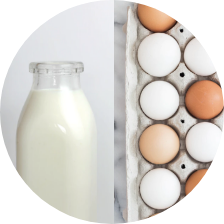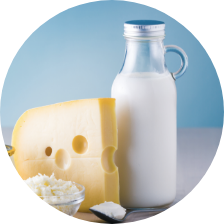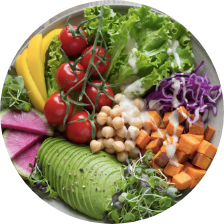Types of Vegetarians
The individual who adopts the vegetarian diet can be classified as follows:

Ovo-lacto vegetarian
Is a vegetarian person who uses eggs, milk and dairy for food

Lacto-vegetarian
Is a vegetarian who does not use eggs but makes use of milk and dairy products.

Strict Vegetarian
Is a vegetarian who does not use any animal derivatives in his food (Plant-Based Diet)
Attention to the definition of Vegan, which goes beyond the field of food: a strict vegetarian who refuses to wear non-food animal components such as leather, wool and silk clothing, as well as animal-tested products.